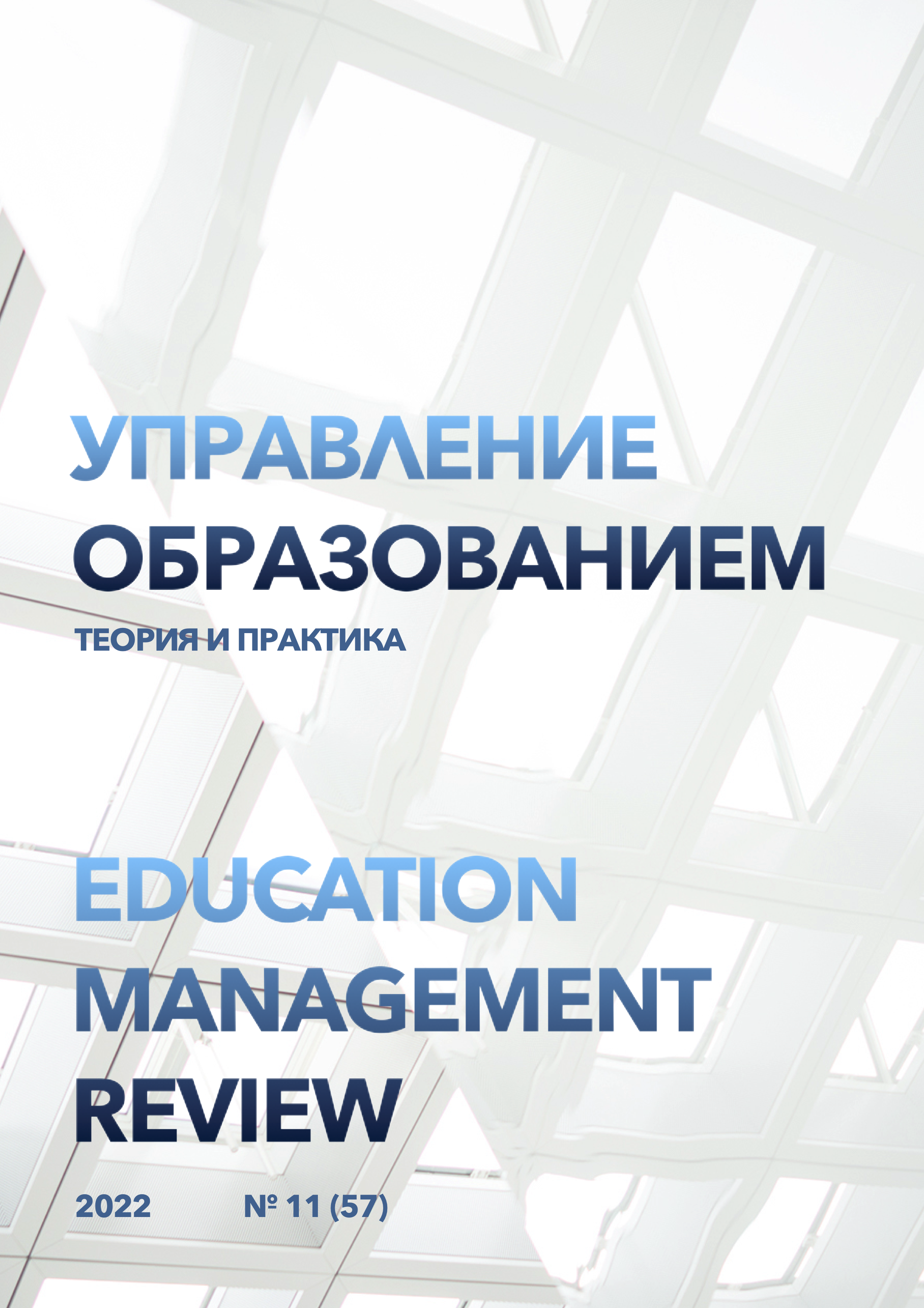Managerial competencies of university development programs
DOI:
https://doi.org/10.25726/g9673-4590-7829-wKeywords:
management competencies, development programs, universities, researchAbstract
Socio-economic changes in our country, associated with the aggravation and complication of the processes of market transformations, form the demand for specialist managers who are able to adapt to the changing conditions of the economic environment, are competitive in the labor market and effectively interact in a professional, corporate and social environment and the like. At the same time, as the practice of the activity of the heads of various levels of management often shows, among them there is a misunderstanding or psychological rejection of the essence of economic transformations, tools to improve the efficiency of enterprises, the inability to find the best options for using material and financial resources and engage in investment activities. This, in turn, leads to the inability of graduates to manage business processes and focuses on the importance of mathematical training of students in the system of professional education. The latter makes the problem of research relevant: the development of scientific and methodological foundations for the mathematical training of students in the context of the development of their managerial competence in the system of university education. So, the economic and mathematical competence of the future bachelor of management is an integrated, intellectual and personally conditioned characteristic of a student, reflecting his ability and readiness to use economic and mathematical tools to evaluate the effectiveness of the results of management decisions and predict its consequences.
References
Авакова Э.Б., Кузнецов А.А. Взаимодействие образовательных учреждений и организаций-работодателей в условиях цифровизации // Телескоп: журнал социологических и маркетинговых исследований. 2021. № 1. С. 82-88.
Андросова И.Г. Деловой английский язык для экономистов и менеджеров (бакалавриат и магистратура). Андросова И. Г. Москва: КноРус, 2017. 191 с.
Калимуллина О.В., Троценко И.В. Современные цифровые образовательные инструменты и цифровая компетентность: анализ существующих проблем и тенденций // Открытое образование. 2018. № 3. С. 61-73.
Карагозов С.Д., Уваров А.Ю., Рыжова Н.И. На пути к модели цифровой школы // Информатика и образование. 2018. № 7. С. 4-15.
Колыхматов В.И. Профессиональное развитие педагога в условиях цифровизации образования: учеб-метод. Пособие. Санкт Петербург: ГАОУ ДПО «ЛОИРО», 2020. С. 135.
Концепция (обновленная) региональной системы оценки качества образования (Челябинская область). 2-изд., испр. и доп. Челябинск: РЦОКИО, 2020. 129 с. ISBN 978-5-906934-42-0
Лапыко Т.П., Тонких А.П., Данилова Т.В. Управленческие аспекты образовательной деятельности преподавателя вуза // Управление образованием: теория и практика. 2020. № 3(39). С. 57-65.
Регер Т.В., Прохоренков П.А. Совершенствование подготовки управленческих кадров для цифровой экономики // Вестник евразийской науки. 2020. Т. 12. № 4.
Сентищева Е.А. Применение иностранного языка при взаимодействии с деловыми партнерами в мультиполярном мире. Молодежь и XXI век - 2021: материалы XI Международной молодежной научной конференции: в 6-ти томах. Том 4. Курск, 18-19 февраля 2021 года / отв. редактор Разумов М.С. Курск: Юго-Западный государственный университет, 2021. С. 134-137.
Сергеева М.Г. Функции педагогического менеджмента в повышении качества процесса подготовки менеджеров образования //Проблемы современного педагогического образования. 2019. № 64-3. С. 269-272.
Симонова В.А. Инновационно ориентированная подготовка к педагогическому менеджменту в непрерывном профессиональном образовании: монография. М.: Инфра-М. 2019. с. 134.
Степанова С.А. Направления реализации социального партнерства ВУЗа и предприятий гостиничного бизнеса при подготовке управленческих кадров // Проблемы современной экономики. 2020. № 3 (75). С. 217-219.
Шамси А. Управление знаниями и управленческие компетенции: роль творческого мышления // Форсайт. 2017. № 4. C. 44-151.
Zein S. Classroom management for teaching English to young learners. // Routledge handbook of teaching English to young learners Publisher: Routledge. 2018. P. 154-168.




